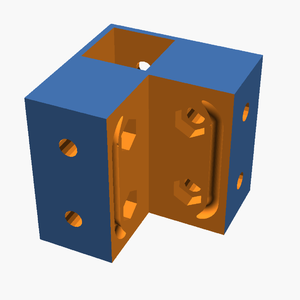Linear bearings: Difference between revisions
From
No edit summary |
No edit summary |
||
| Line 4: | Line 4: | ||
|date = 2020 | |date = 2020 | ||
|tools = [[3D printers]] | |tools = [[3D printers]] | ||
|stl = https://github.com/timschmidt/replimat/blob/master/bin/stl/linear-bearing.stl | |||
}} | }} | ||
| Line 12: | Line 13: | ||
=Approaches= | =Approaches= | ||
Bearings allow [[frames]] a variety of motion in relation to each other and other components. | Bearings allow [[frames]] a variety of motion in relation to each other and other components. | ||
==Linear Bearings== | ==Linear Bearings== | ||
To use the captive hex holes, insert bolts from the inside of the linear bearing, pointing out toward the frame. | |||
<gallery> | <gallery> | ||
Linearbearing1.jpg|Linear bearing | Linearbearing1.jpg|Linear bearing | ||
| Line 33: | Line 35: | ||
Linear rail mount.jpg|Linear bearing | Linear rail mount.jpg|Linear bearing | ||
</gallery> | </gallery> | ||
===Parts=== | ===Parts=== | ||
Revision as of 16:11, 28 March 2021
Introduction
Challenges
Static structures are not sufficient for reproducing most useful objects.
Approaches
Bearings allow frames a variety of motion in relation to each other and other components.
Linear Bearings
To use the captive hex holes, insert bolts from the inside of the linear bearing, pointing out toward the frame.
-
Linear bearing
-
Linear bearing
-
Linear bearing
-
Linear bearing
-
Linear bearing
-
Linear bearing
-
Linear bearing
-
Linear bearing
-
Linear bearing
-
Linear bearing
-
Linear bearing
-
Linear bearing
-
Linear bearing
-
Linear bearing
-
Linear bearing
-
Linear bearing
-
Linear bearing

















